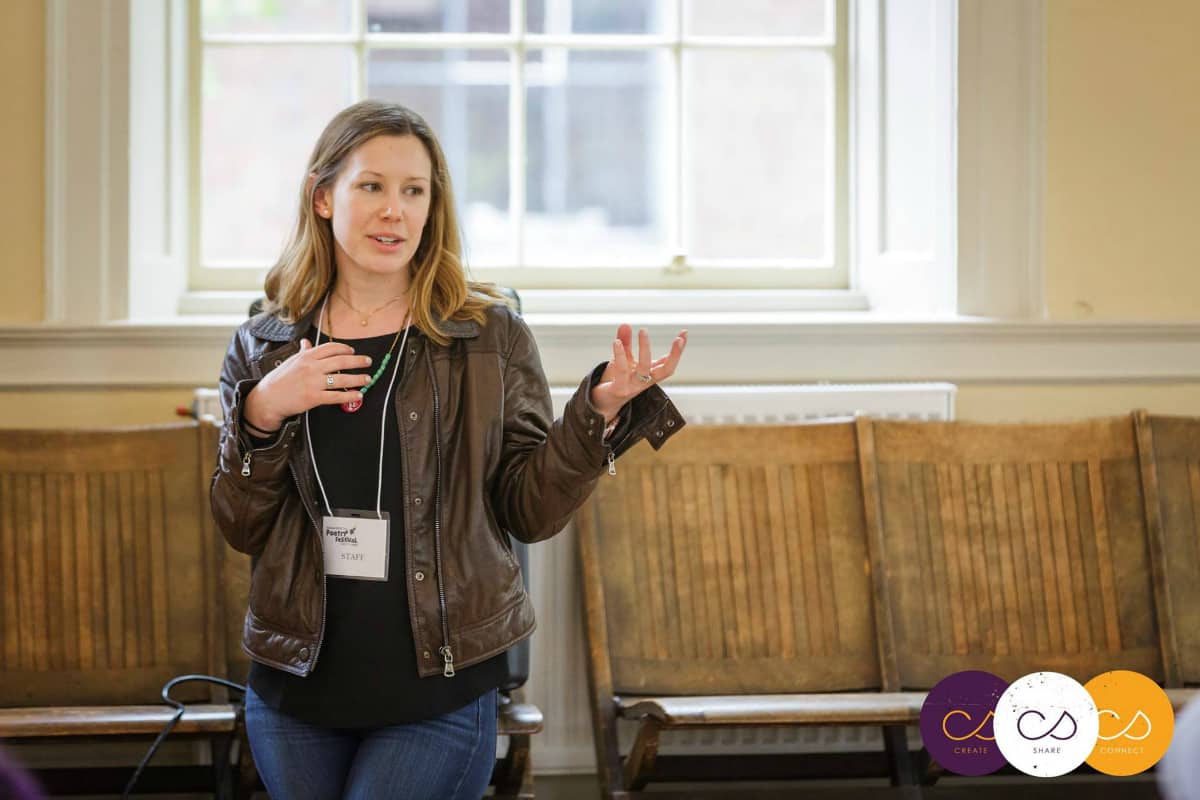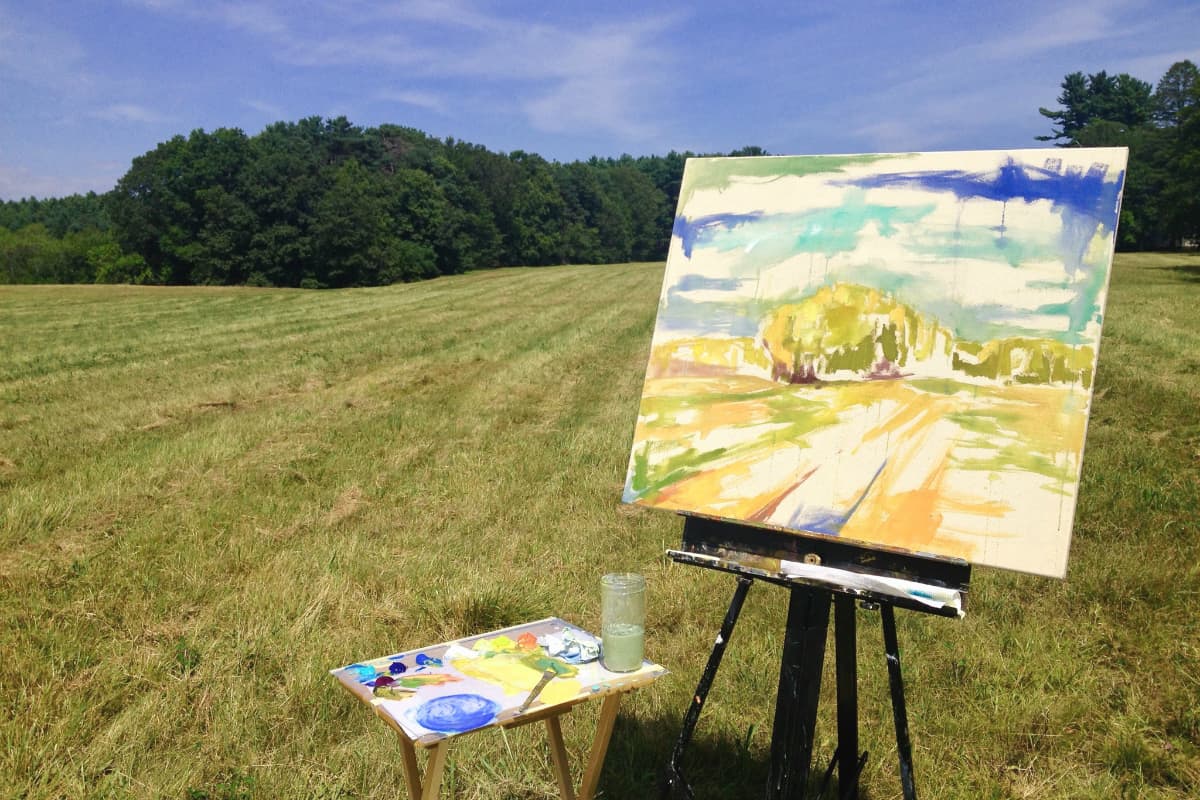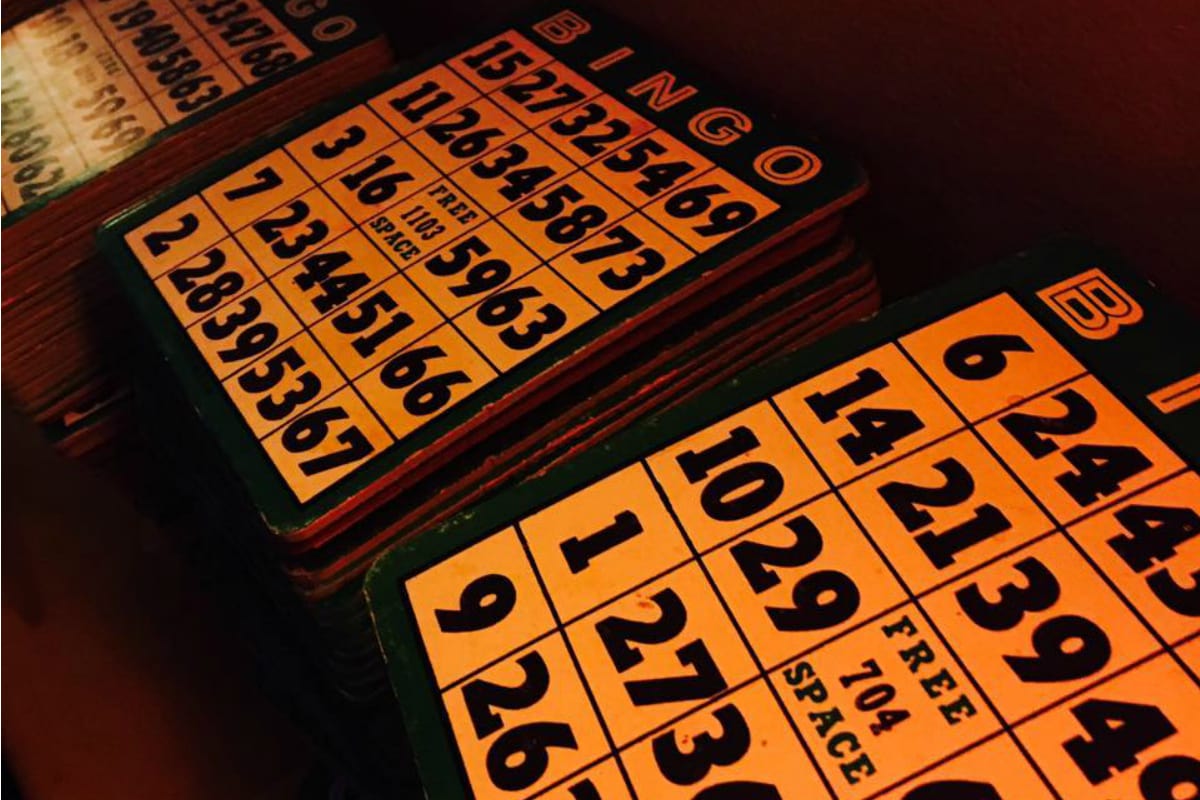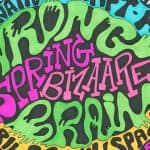Laurin Macios, the first executive director of Mass Poetry, a non-profit for poets and readers alike, has big plans for words.
This spring Mass Poetry, a statewide nonprofit committed to helping working poets and expanding the audience for poetry in Massachusetts, appointed its first executive director ever—Laurin Macios. Macios has been involved with the organization since 2013, but left briefly to work as a program director for the Poetry Society of America. A working poet herself, Macios with a deep commitment to expanding Mass Poetry’s long-term stability and impact. Take spoke with Macios about balancing her roles as poet and director, as well as what makes Massachusetts such a fertile place for poetry.
Take: You have a pretty full plate these days. How do you reconcile your creative work with your organizational work?
Laurin Macios: When I had my first interview at Mass Poetry with (Mass Poetry co-founder) Michael Ansara in 2013, he said, “I’m going to ask you this as like a false dichotomy question: are you more creative or are you more organized?” And I said, “one hundred percent I’m more organized.”
[Michael] is one hundred percent creative and has so many amazing ideas, so what Mass Poetry needs now is someone to build the structure around it so we can keep doing those ideas for 20 years and longer. […] I’m sort of coming in here and helping turn this beautiful, sprawling free verse poem into, I don’t know, like a villanelle. Hopefully an epic, actually. (laughs) Yeah, that would be better.
T: What qualities do you think unite poets in Massachusetts?
LM: What I love about the poets in Massachusetts and in New England overall is really the variety. And across that variety they’re always doing such engaging and unique and interesting work. I would also say that they want to come together and support each other. In a way, Mass Poetry was founded by communities of poets who came together to form this one community. I just love that these poets wanted that, and that’s what really makes the Massachusetts Poetry Festival so warm and wonderful.
T: Poetry in Boston got a huge visibility boost a few years ago courtesy of the Raining Poetry program, which places poems on city sidewalks that only appear when wet. Where did that idea come from?
LM: That actually came about during my time with Poetry Society of America, so I don’t know its origin story as well. But I do know that it came out of conversations between Mass Poetry and the City of Boston. Boston Poet Laureate, Danielle Legros Georges, selects the poems and manages a crew at Lesley University, where she teaches, to create the stencils.
That program really just makes me smile. It’s meaningful that you’re walking around and there’s poetry where you’re not expecting it. It’s literally taking poetry off the shelf and placing it at people’s feet.
We’ve been able to put poems up in different languages and engage different audiences, which has been really exciting, and we think about which poems and which languages would be best in which locations. It’s been a really great way to get poetry in front of people who we might not be able to reach otherwise.
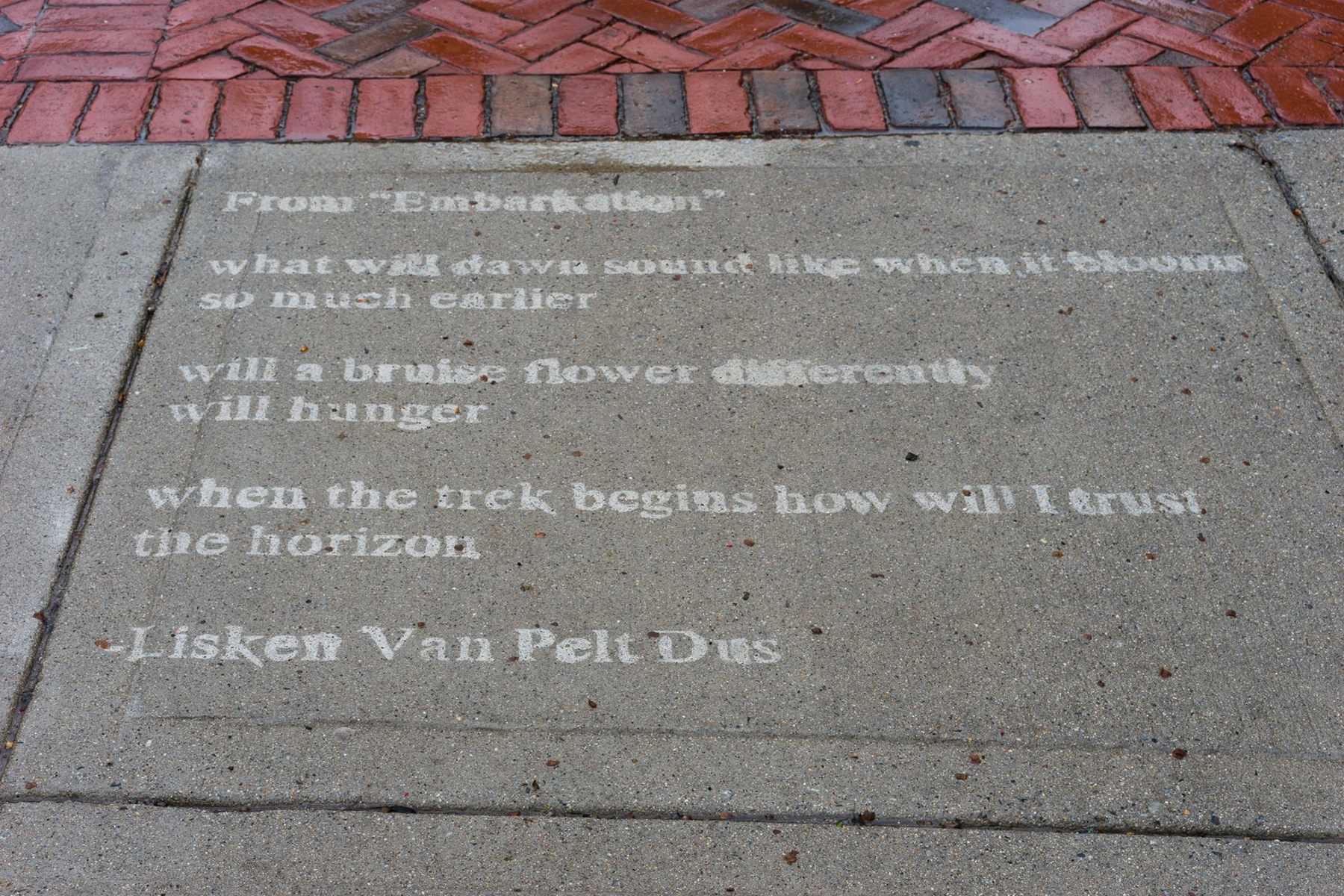
Part of the on-going Raining Poetry installation, a collaboration between Mass Poetry and the City of Boston. Photo courtesy Mass Poetry.
T: Is there something about Boston in particular that you think allowed this idea to start and flourish there?
LM: I think it’s the city’s attitude towards the arts, really. We have a Chief of Arts and Culture, and the city is full of amazing, vibrant artists and people who want to bring art to the commonwealth and its citizens. I think that’s pretty unique.
T: What’s coming up that you’re excited about?
LM: We do this program […] called An Evening of Inspired Leaders. We bring together 15-18 leaders from myriad fields to one stage, and have them each read a poem that has inspired their success and then share a few words about it. [The audience gets] to see that not only writers and people involved in literature are affected by poetry. We’ve had Deval Patrick, actors, actresses, people from the medical field, religious leaders, chefs, all come together to read a poem. That happens annually—the next one’s in February, so it’s a ways off.
T: What poem would you pick to read onstage?
LM: Ooh, that’s lovely. Actually two come to mind right away, but I would say Mary Oliver’s poem “Dogfish” from her book Dream Work. It’s a really beautiful poem about pushing through. The lines that always come to mind are: “I think those little fish/better wake up and dash themselves away/from the hopeless future that is/bulging toward them/probably/if they don’t waste time/looking for an easier world/they can do it.” I always think of that—don’t waste time conforming to your world, just keep moving forward.
The other is Walt Whitman’s “Song of the Open Road,” which more just inspires how I try to live my life: “afoot and light-hearted.”
Interview has been edited and condensed.

